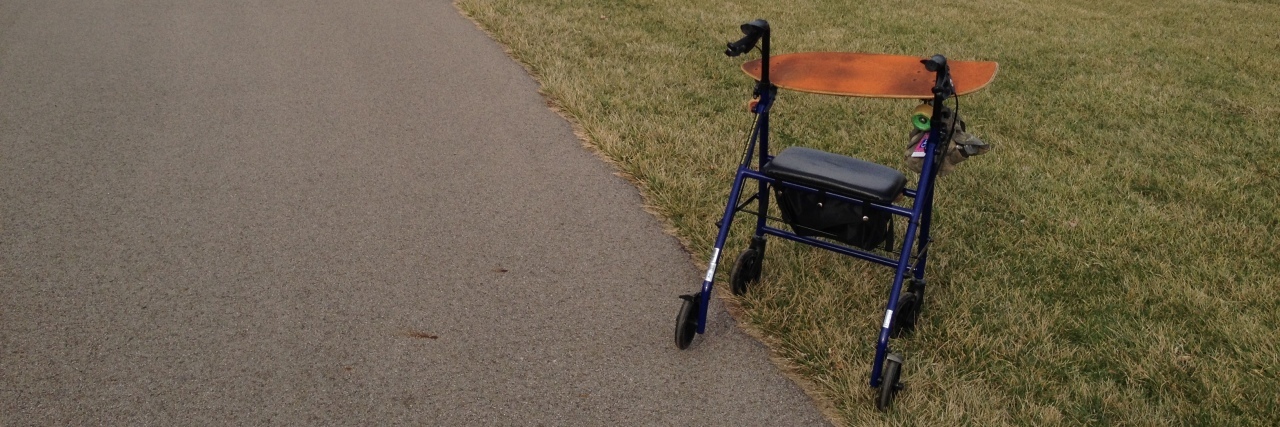If You See Me at the Park With My Walker and Skateboard
Yesterday, I rode my skateboard for the first time in nine months.
Last time I went skating, I was too dizzy to walk in a straight line, much less ride a board, and I did it anyway. The result was the worst fall I’d ever had from a skateboard; chunks of skin missing from my already weak and painful knees, as well as portions gone from my arm, shoulder, and face. I still skated home. I’ve been skateboarding for 16 years, but the past five or so have involved a lot less of it than I would like, largely due to my increasingly debilitating chronic illness.
- What is Fibromyalgia?
- What Are Common Fibromyalgia Symptoms?
It’s funny. When people with obvious disabilities try to push past them and do something sporty or active, the public generally responds with encouragement. If a girl who’s missing an arm wants to take up snowboarding, she’s told she is brave or an inspiration. If a man with a prosthetic leg wants to compete in triathlons, he’s featured in news stories and possibly even given sponsorships. But if you have an invisible illness, everything you do outside of the comfort of your own home results in criticism and skepticism.
Even writing this article, the potential responses echo in my head:
“You can’t really be that sick if you were out skateboarding.”
“Oh, you’re well enough to skateboard? You must be well enough to hold a job.”
“How can you ride a skateboard if you claim you can barely walk?”
Never mind that skateboarding has gone from an everyday part of life to a twice a year treat.
Never mind that I brought my walker to the park where I rode it, knowing I would be tired and sore and would relish the support when I was done.
Never mind that I only did one lap around a relatively flat track, and that the very next day I was too sick to leave the house at all.
People only see one part of the story – what they see doesn’t even scratch the surface.
But the other thing that people don’t see is this – those 20 minutes I spent skateboarding made me feel alive again. They made me feel like a real person, like a normal person with abilities and interests, and not just a walking medical mystery. Yes, I was more unsteady than I used to be. Yes, I stayed away from hills and readjusted my footing more than I would have had to before. But riding a skateboard has been a small part of who I am for the majority of my life, and that small part came out yesterday in a way it hadn’t been able to in nine months.
Nine months of my skateboard lying unused in my car because I never had the energy to both drive somewhere suitable and ride my board.
Nine months of coming home from walking the dog and crashing on the couch, too exhausted to do anything else for the rest of the day.
Nine months of being ashamed of using mobility devices when I used to be so active.
I’m not better now. I didn’t get cured. The only reason I was able to skate yesterday was because I had someone to take me to an easy skating place, I had my walker to help me not get too worn out beforehand and to make things easier afterward, and I managed to keep myself from pushing too hard (which is a big accomplishment for me).
But when you live with chronic illness, you have to take every victory as they come. Today, I’m celebrating the piece of me that came back with that short ride on a skateboard. Maybe tomorrow I’ll find something new to fight for. I never needed to be anyone’s inspiration. I just wanted the world to know I’m not faking it.
But you know what? Think I’m faking it if you want to. I’ll be busy living my life — walker, skateboard, and all.

